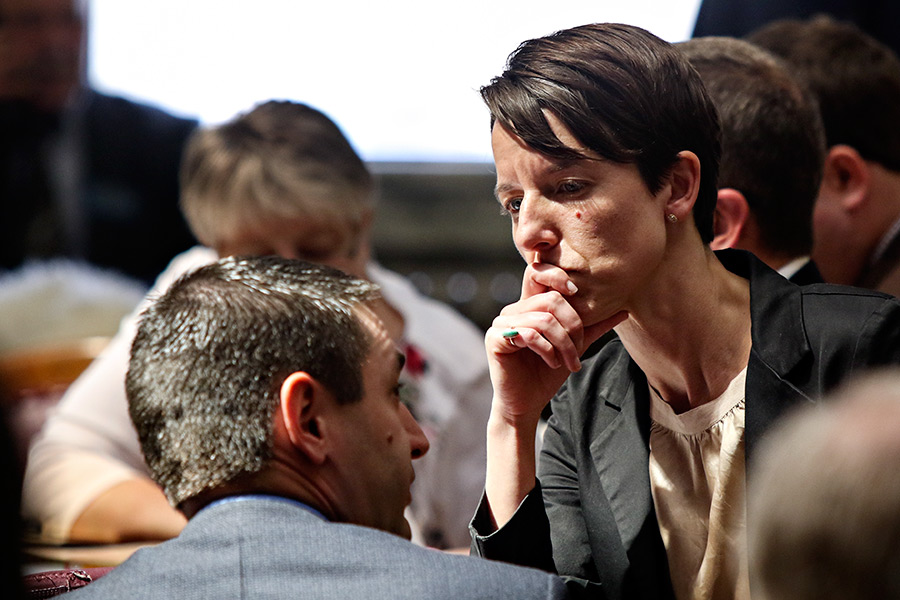Montana House Speaker Defends Pending State Budget Cuts
Cuts across state agencies to begin next month, triggered by state revenue lower than the forecast
By Tristan Scott
GREAT FALLS — Montana’s House speaker defended $97 million in budget cuts triggered by less-than-expected state income by saying the cuts are doing what they are supposed to: Reducing the size of state government in lean economic times.
Republican Austin Knudsen of Culbertson also dismissed the notion that Republican lawmakers alone are responsible for the spending reductions that will hit the state’s health and education departments the hardest. He said that Democratic Gov. Steve Bullock’s office had input on the bill, too, the Great Falls Tribune reported.
“These weren’t cuts just made in a vacuum,” Knudsen said. “There was a lot of flexibility built in.”
The cuts across state agencies to begin next month were triggered by state revenue coming in lower than the forecast approved this spring by the House Taxation Committee. The cuts were included in a bill passed by the Republican-led Legislature and signed by Bullock to ensure the state has enough cash in reserve over its two-year budget cycle.
But Democratic lawmakers and the governor’s office said the House Taxation Committee adopted a revenue forecast that was too high in order to avoid raising taxes proposed by them that would have helped shore up the budget’s bottom line, such as an increase to tobacco taxes.
The governor met with Republican budget writers to negotiate the cuts when it became clear the governor’s tax proposals would not be considered, Bullock spokeswoman Ronja Abel said.
Last week, community health providers said the cuts would reduce services offered to elderly and disabled Medicaid patients. A nursing home owner said he would have to turn away patients, and a mental health provider said more people with mental illness would end up in jail as a result.
The Office of Public Instruction will lose at least $19 million over two years, and at least 16 state workers will lose their jobs because of the cuts.
Another $30 million will be taken from the state’s fund to fight wildfires, leaving about $30 million for what is emerging as an active summer for wildfires burning across the state.
The revenue forecast approved in the spring was based on the best information lawmakers had at the time, Knudsen said. “We were hoping not to see the cuts, but this is where we are today,” he said.